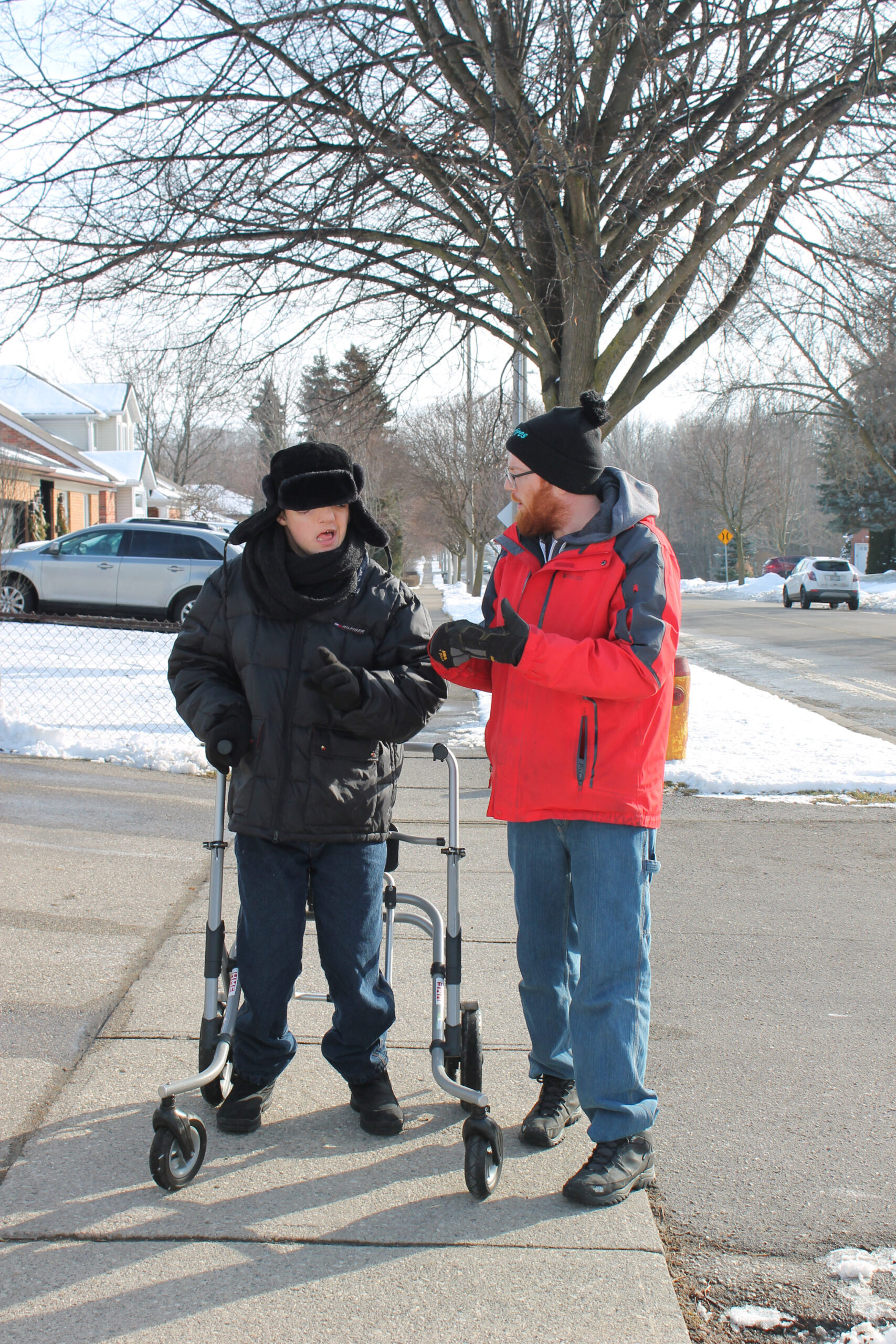When a group of parents lobbied the Ontario government in 1989, they stepped up to be the voices of their children with deafblindness.
They hoped to secure funding for community-based living support programs for when those children finished school.
Independent Living Residences for the Deafblind in Ontario (ILRDBRO), now renamed DeafBlind Ontario Services, emerged as a product of this movement on April 6, 1989.
DeafBlind Ontario Services specializes in providing accessible and customized support services to deaf and blind service users across the province.
“Our holistic approach to Intervenor Services empowers people with deafblindness to achieve their goals and dreams,” reads DeafBlind Services’ website.
One way they do this is through the use of intervenors — people who provide auditory and visual assistance to individuals with deafblindness.
Intervenors also a medium of connecting service users to people in their community, acting as a communication partner.
“Working as an intervenor helps me to be a better person; it allows me to guide someone to really experience the joys the world has to offer,” Jesse Downes, an intervenor who has worked at DeafBlind Ontario Services for 11 years, said.
Deafblindness is a combination of vision and hearing impairments, a condition that can uniquely vary from person to person.
Deafblindness has the potential to limit access to information, communication, mobility, and can lead to social isolation.
To bridge the gap between deafblind impacted individuals and their communities, has created a program of activities led by the intervenors for deafblind individuals.
“There can be anywhere from three activities for the day or nine… It all depends on the plans, it can mean a bigger community outing or something like a craft at home. I support each individual with these activities based on their specific and unique needs, always encouraging their independence. Throughout the day, there are times when you may need to administer medication or help with personal care, too,” Downes said.
Approximately one percent of the Candian population, roughly 368,400 people, are deafblind, deafblind individuals are estimated at around 147,736 in Ontario alone.
It is an area in high demand and is a service sector currently experiencing growth, DeafBlind Ontario Services said.
“As an intervenor, every workday is different. The people we support at DeafBlind Ontario Services have a range of plans, personal goals, and commitments. The role of the intervenor may take you to a local volunteer placement where your support will encourage the individual’s independence, or on a community outing. The intervenor also bridges the gap with day-to-day tasks in their home”, DeafBlind Ontario Services’ Chief Operating Officer, Karen Keyes, said.
The problem: a shortage of trained individuals.
George Brown College’s Intervenor for Deafblind Persons’s two-year Bachelor’s program is currently the program of its kind available in Ontario.
With the new year, Deafblind Ontario Services invites potential intervenors towards a new career. “We believe that with a helping hand and supportive touch, individuals with deafblindness can increase their independence on their own terms,” reads DeafBlind Ontario Services’ website.
































